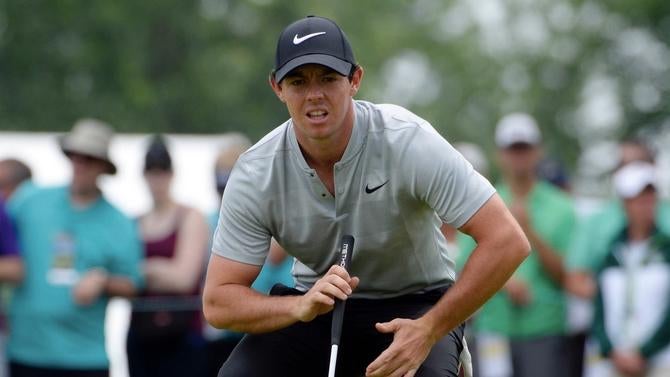Rory McIlroy released a statement on Wednesday saying that he will not play in the 2016 Rio Olympics even though he confirmed he would just three weeks ago.
"I've come to realize that my health and my family's health comes before anything else," said McIlroy in a statement. "Even though the risk of infection from the Zika virus is considered low, it is a risk nonetheless and a risk I am unwilling to take."
As a result of McIlroy's actions here -- compounded with those of some of golf's other stop stars -- golf in the 2024 Olympics just took a major blow. The sport, which is invading the Olympic Games for the first time in over a century, is only guaranteed a spot in the next two games through 2020. After the 2016 games, there will be a vote to determine whether golf will be in the Olympics beyond 2020. Now, its biggest global star has pulled out of Rio.
The dominoes, as they say, might be about to fall. Just like when McIlroy led the charge against the USGA last Sunday on Twitter for its penalty against Dustin Johnson, many players may will follow his lead here. He is the alpha dog when it comes to superstar golfers, so it suddenly becomes much easier to do whatever he's doing. No matter who you are, the pressure is off if McIlroy is doing it as well.
In other words, this might be the death knell for golf in the Olympics. What was a minor problem when Adam Scott and Louis Oosthuizen removed their names has turned into a full-blown disaster with McIlroy. Even Jordan Spieth and Rickie Fowler wavered a little for the first time last week at the U.S. Open at Oakmont -- something I had not heard from either of them to this point about the Olympics. Rory's decision might be enough to push them over the edge.
Do we really think golf will get the thumbs up after this Olympics and before the next one without McIlroy (and potentially several other stars)? It's not as if the Zika virus is unique either. There's always some wonky concern no matter what city or which games we are discussing. The real issue here is that golfers don't see the allure of a gold medal the same way other athletes do. The Zika risk is small, as Rory said, but it outweighs winning gold in golf because there are so many other mountaintops to climb.
That's not the same for swimming or track and field.
This constitutes a meltdown for the International Golf Federation (IGF), which earlier this year pretty much promised all of golf's stars would be in attendance.
"They are going to be there [in Rio de Janeiro]," IGF executive director Antony Scanlon told ESPN. "Any athlete who qualifies will be there. They see the significance of this event to golf and for the opportunity this presents them. There are benefits to be gained from participation and winning a medal. For a starter, there is a television audience of 3.6 billion. They don't normally get that every weekend!"
So much for that!
On Wednesday, the Olympic council of Ireland said it was "extremely disappointed" in McIlroy's decision. Rory knew that, too. He knew he held the future of the sport at the Olympics in his hands.
"It's obviously being played in Rio this year, and it's being played in Tokyo in 2020," said McIlroy at a press conference earlier in the year. "I'm not sure if we're going to have another opportunity to win a gold medal after that depending on what happens. I'm not sure if golf is going to have another opportunity to win a gold medal after that."






















